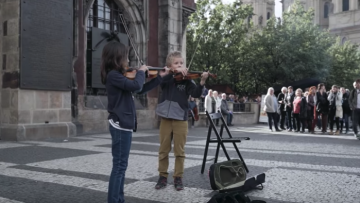Every year the European Commission does research in every country in the EU to find out the opinions and feelings of EU citizens. Sometimes it’s what they might consider ‘good news’ sometimes ‘bad news’. What can definitely be said is that it’s not propaganda.
The results are published every August. Here are the results for this year’s survey.
One thing that has been of concern to all EU citizens is how much one can trust the EU, their own national government and their own national parliament. It’s been pretty level for the last few years with a very slight right in trust for the EU. This isn’t surprising as there were EU elections this year so people would look at the European Parliament more closely.
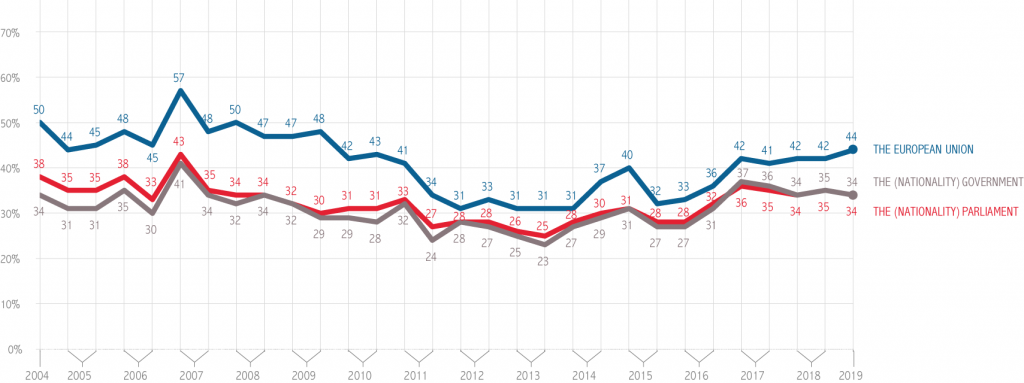
What is also unsurprising is the country spread from 72% trusting the EU in Lithuania to 29% trusting the EU in the UK. Only 5 of the 28 countries have more than half the population distrusting the EU.
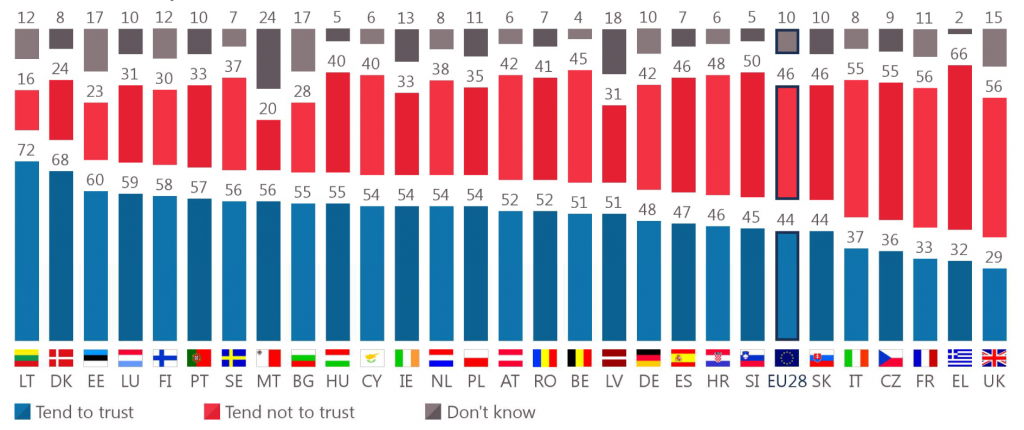
However, although there is some distrust the overall image of the EU is increasing – and quite dramatically. Since the low point in the first half of 2016 it has risen from 34% to 45% and the negative image of the EU dropped from 27% to 17%.
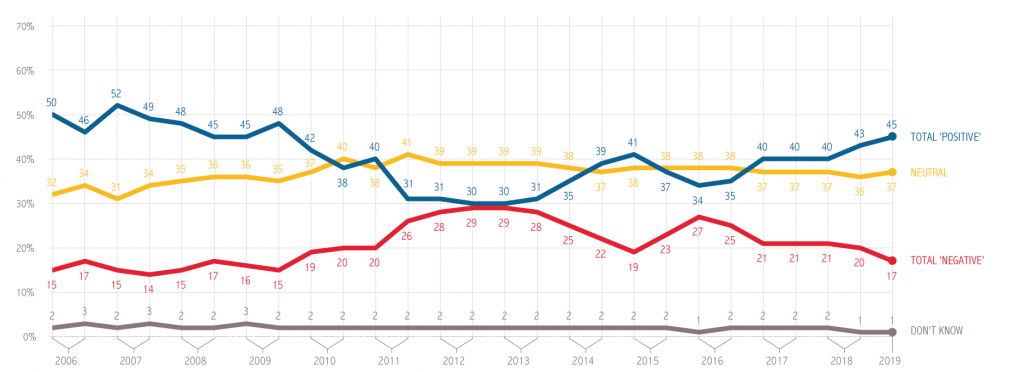
And looking at the future of the EU the trend is even higher. Now 61% of EU citizens are optimistic about the future of the EU and 34% pessimistic. All except the UK and Greece have half the or moe of the population optimistic about the future of the EU!
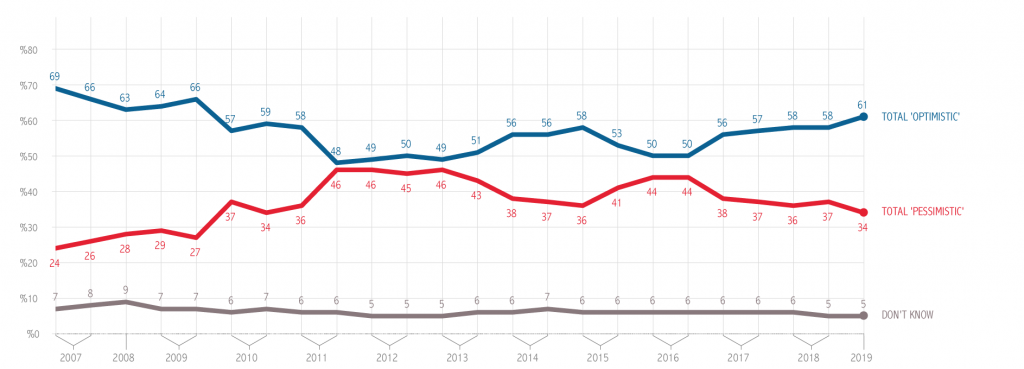
The most dramatic change though is how much EU citizens believe their voice is heard in the EU. Since 2004 those people who believed their voice was not heard were in the majority, with at the highest point two thirds of EU citizens believing their voice was unheard.
This has now switched. In this survey 56% believe their voice heard and only 39% believe their voice unheard. The countries that have the lowest perception of their voice being heard are Cyprus, Latvia, Greece and Estonia where less than one third feel their voice is heard.
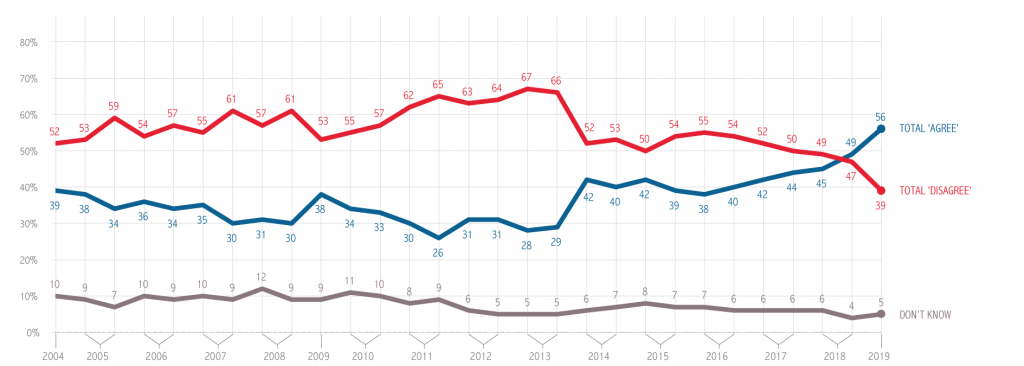
Along with that there is an increasing satisfaction with the way democracy works in the EU. Again this year being a European Parliamentary election year that is hardly surprising. People see how EU democracy works first hand!
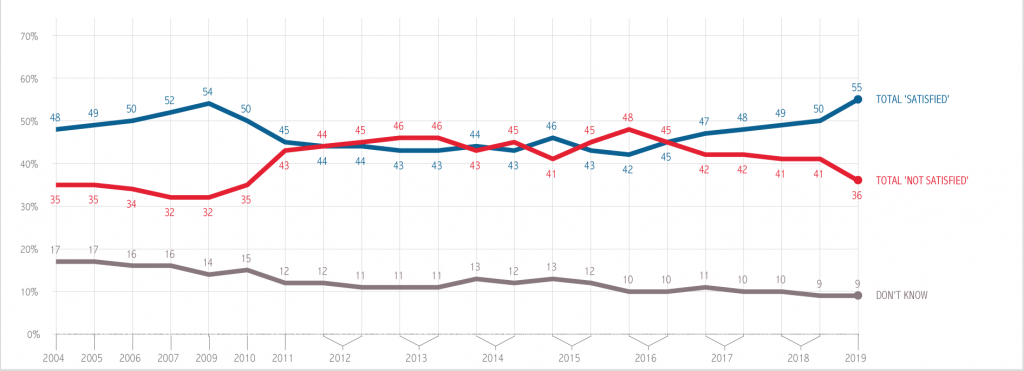
Right across the EU a majority of the population are citizens of the EU. This is internalising the factual truth of being one. Since the autumn of 2018 the feeling of being an EU citizen has increased in 22 of the 28 member states. In Cyprus this rose dramatically by 8% to 73%.
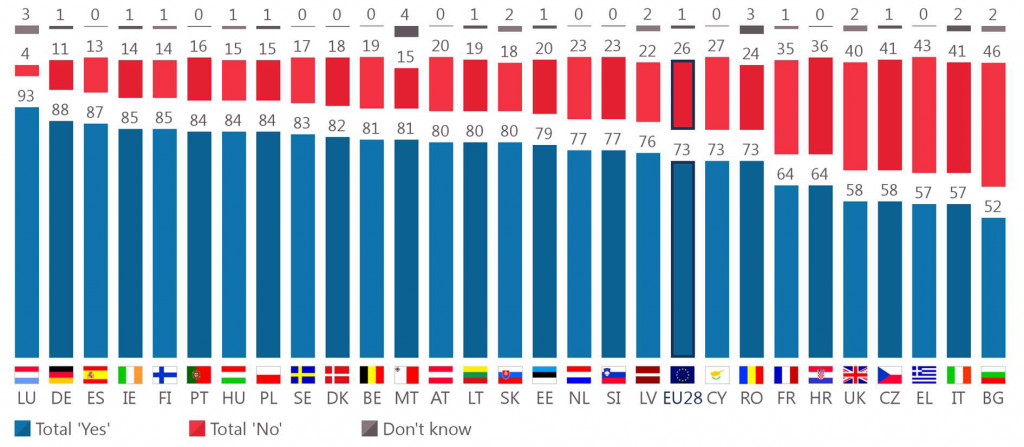
But being an EU citizen is more than just a feeling. The survey asks which of a list of attributes of the EU are the most positive. The two leaders by a long way are the free movement of people, goods and services and peace among the member states of the EU.
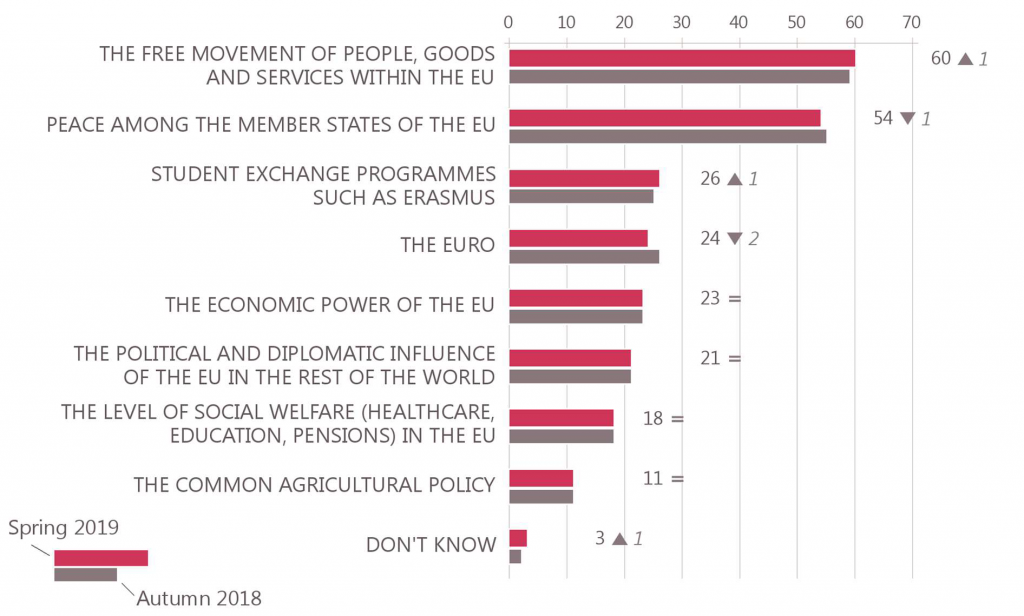
Alongside the attributes of the EU are our achievements as a community: Cheaper calls when using a mobile, improved consumer rights and other cross border protections.
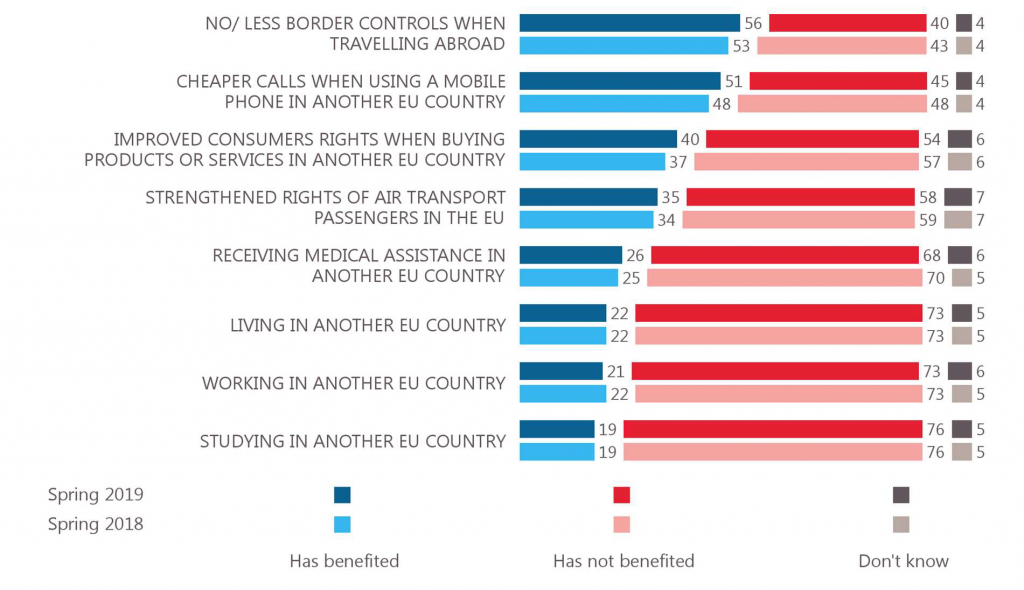
Of course as well as achievements there are concerns: Immigration, climate change, the economic situation, terrorism and so on. Immigration though still the leader dropped 6% as a concern, to the point that it is now only one of the two top concerns for one third of EU citizens.
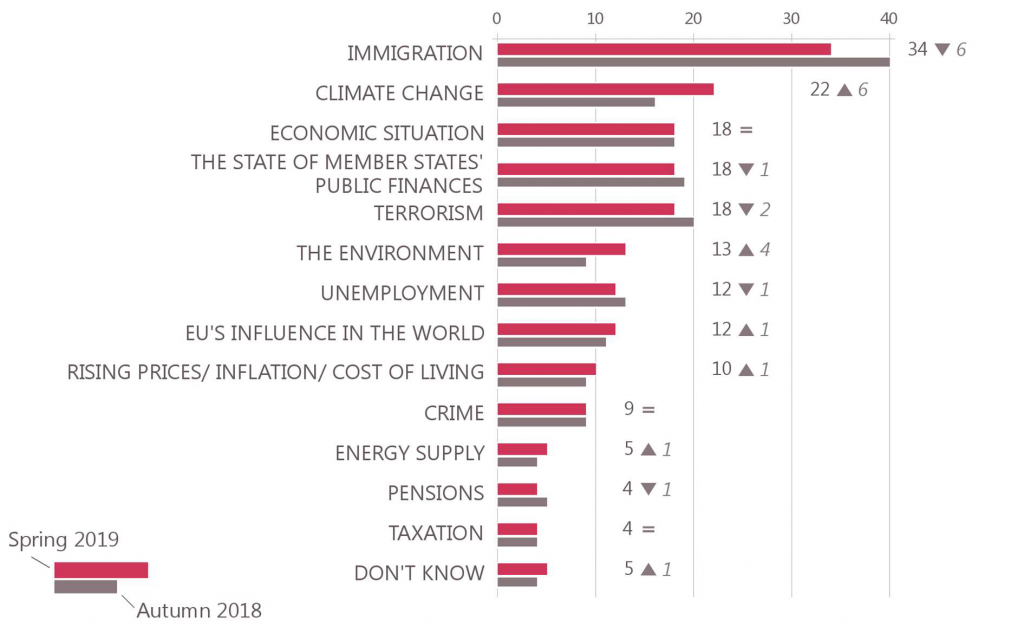
Looking at this over the past five years one can see that concern over immigration started lower than today, peaked and is now on a downward trend. Similarly terrorism.
But rising now, are climate change and the environment. If the trend continues these will be the primary concerns over the next few years.
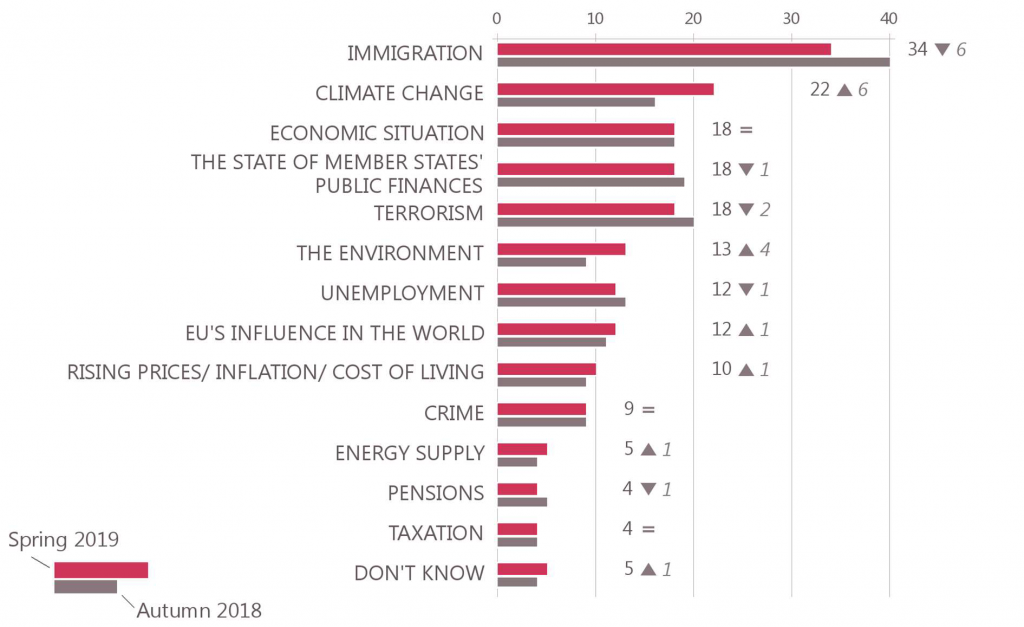
Although immigration is the number one concern for the EU as a whole, at the national level it is down to number five. This probably means we can expect to see that drop further in the coming years.
At the national level the environment and climate change are rising, but the two top issues are unemployment and the cost of living. These are normal peace time concerns.
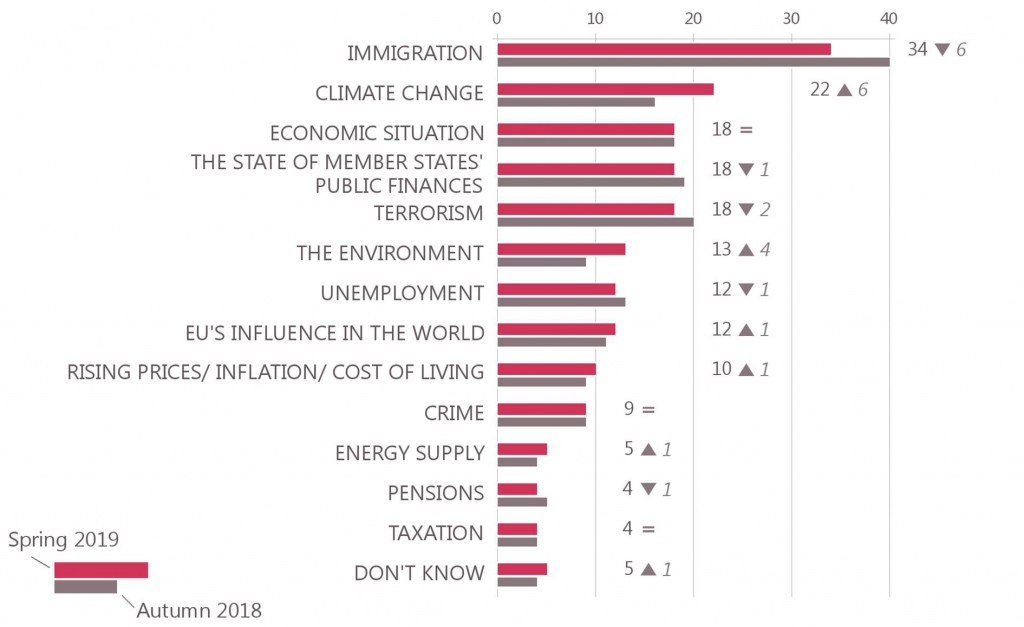
Although those are the concerns looking back over the past five years there are dramatic changes. In 2004 nearly half EU citizens were concerned about unemployment!
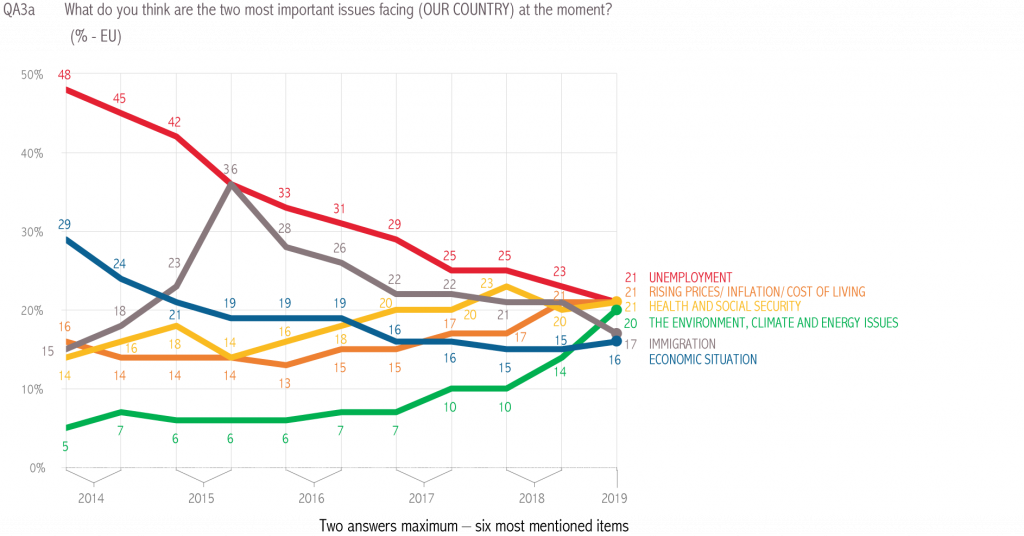
Economically about half of EU citizens believe that the EU economy continues to be good and just over one third believe it to be bad.
However, when asked about the Euro as a currency more than three quarters of those in the Euro zone are for the currency and nearly two thirds of those outside the Euro zone are for the currency. In seven countries, all outside the Eurozone, the majority of EU citizens responded against the currency.
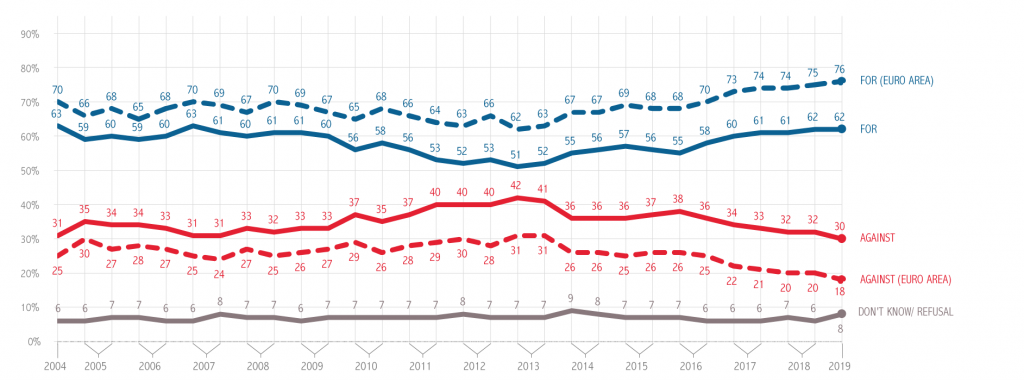
Overall the Eurobarometer appears to show the EU in a more positive light than at any time over the past decade!

